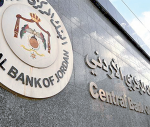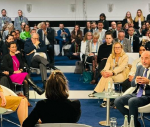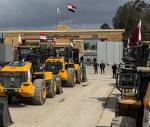You are here
King Abdullah’s message on what it means to be a Muslim
Aug 03,2015 - Last updated at Aug 03,2015
His Majesty King Abdullah’s speech to the European Parliament earlier this year was a historical statement that should not go unnoticed, either by European and Western audiences or education planners and leaders in the MENA region. Europeans, and the West in general, should take notice of their policies and practices towards Islam, whether internally, by promoting tolerance and coexistence in the fight against racism and Islamophobia, or externally in ensuring relevance and results-oriented economic aid packages for the MENA region and the Islamic world in general. Many economic development interventions, unfortunately, are so heavily focused on recruiting external consultants with exaggerated rates that several programmes fall short of achieving their objectives. The USAID inspector general’s evaluation of the agency’s $50 million programme to train Afghan youths to become productive members of their society found “little evidence that the project has made progress towards its goal”. The report, two years into the project, showed that USAID handed the project to a contractor and then paid little attention to it.
But perhaps, more important, and this is the focus of this article, is King Abdullah’s message to the Arab Muslim audience, especially young men and women whose understanding of Islam, its culture, history, belief, and required conduct are, unfortunately, superficial and do not go beyond knowing or observing the five daily obligatory prayers. Millions of “non-practicing” young Muslims are overwhelmed by the appearance of Western cultural “spotlights”, which preoccupy their lives and divert their attention from learning and understanding the essence of Islam or focusing on gaining essential life skills needed for survival in the increasingly fast-paced global economies. Good learning and education behaviour like reading a book while on a train, bus or plane, frequently seen in the West, are unfortunately not imitated in our region. You do not, or only very rarely, see a young man or woman in Cairo, Amman or Riyadh reading a book on the way to work or while waiting in a doctor’s office, for example.
There is, unfortunately, the other extreme, in the Islamic world, where young women and men were brought up as devout, practicing Muslims with a very rigid, and frequently distorted, definition of Islam. It is this type of Muslim that extremists and terrorist groups target for recruitment; the recruitment process ensures that Western, and particularly American, hypocrisies and double standards are exploited, either by highlighting Western support for the continued, illegal occupation of Palestinian land, the American fiascos in Iraq Afghanistan or the killing of thousands of innocent women and children through drone assassinations in violation of international law, in the name of fighting terrorism.
The teaching and upbringing of many young Muslims are so outdated that when some of them come across a Muslim who does not pray regularly, for example, he/she is defined are a kafir or infidel that should immediately change course or face the consequences which may even include death! Such a distorted understanding of Islam goes against the essence of the Almighty’s message to Prophet Mohammad. This message, which is extremely simple, yet moving, illuminates the path for every inquiring mind: “We only sent You as mercy to the world.” Yes, mercy and compassion. No violence. No punishment. No coercion.
Extremism, similar to bigotry, racism and Islamophobia in the West, is a product of ignorance, a sense of inferiority and a lack of confidence, and characterises unhealthy personalities; it is evil which breeds violence and intolerance. Extremists are blind to hundreds of Koranic verses on forgiveness and compassion. These include: “O, [Prophet Mohammad] [say to] my servants who have transgressed against themselves, do not despair of Allah’s mercy, as Allah forgives all sins as Allah is all forgiving and all merciful.”
The treatment of non-Muslims in the Koran also confirms this mercy and tolerance: “And if any of those who ascribe divinity beside God seeks thy protection, grant him [or her] protection, so that he might be able to hear the word of God [from thee]; and thereupon ensure he reaches safety; this is because maybe they [sin only because they] do not know [the truth].”
In very simple terms, the safety and security of non-Muslims, is a clear act of worship in Islam!
Uneducated, unemployed and impoverished young Muslims are vulnerable to distorted interpretations and recruitment by extremist and violent elements.
King Abdullah’s speech, and in particular, his reference to how Muslim soldiers were ordered not to kill a child, a woman or an old person, not to destroy a tree, not to harm a priest, not to destroy a church, mosque or synagogue, should be properly reflected in the region’s modern school curriculums and textbooks.
His Majesty’s focus on three core areas: meaningful interfaith outreach (engaging people where they live); achieving an international system that offers all people the respect they deserve; and creating deeper hopes (fighting economic insecurity and exclusion), should also be seriously considered through perhaps setting up special working groups to translate these core areas into practical educational and economic development interventions aimed at reforming outdated education strategies in the region and externally by ensuring funded but irrelevant economic aid projects are properly redesigned and refocused.
Similarly, education curriculums in the West should also educate young Europeans and Americans about Islam, its tolerance and contribution to science, medicine and civilisation. This generation should also better understand the history of colonialism and economic exploitations Third World countries suffered (by Western powers) and how such historical scars have contributed to poverty, dictatorship and radicalism, not only in the Islamic world but in Africa and Latin America as well. This global perspective helps educate future policy makers and economic planners establish linkages between historical developments and current global challenges, including radicalism.
Finally, Arab leaders should also learn and further understand the history of Islam as this understanding would make them more sensitive, better informed, possibly prouder of their history and perhaps even more accountable to their peoples and countries.
The writer is a development and humanitarian operations practitioner and public health specialist currently visiting Amman on a humanitarian mission. He contributed this article to The Jordan Times.[email protected]













